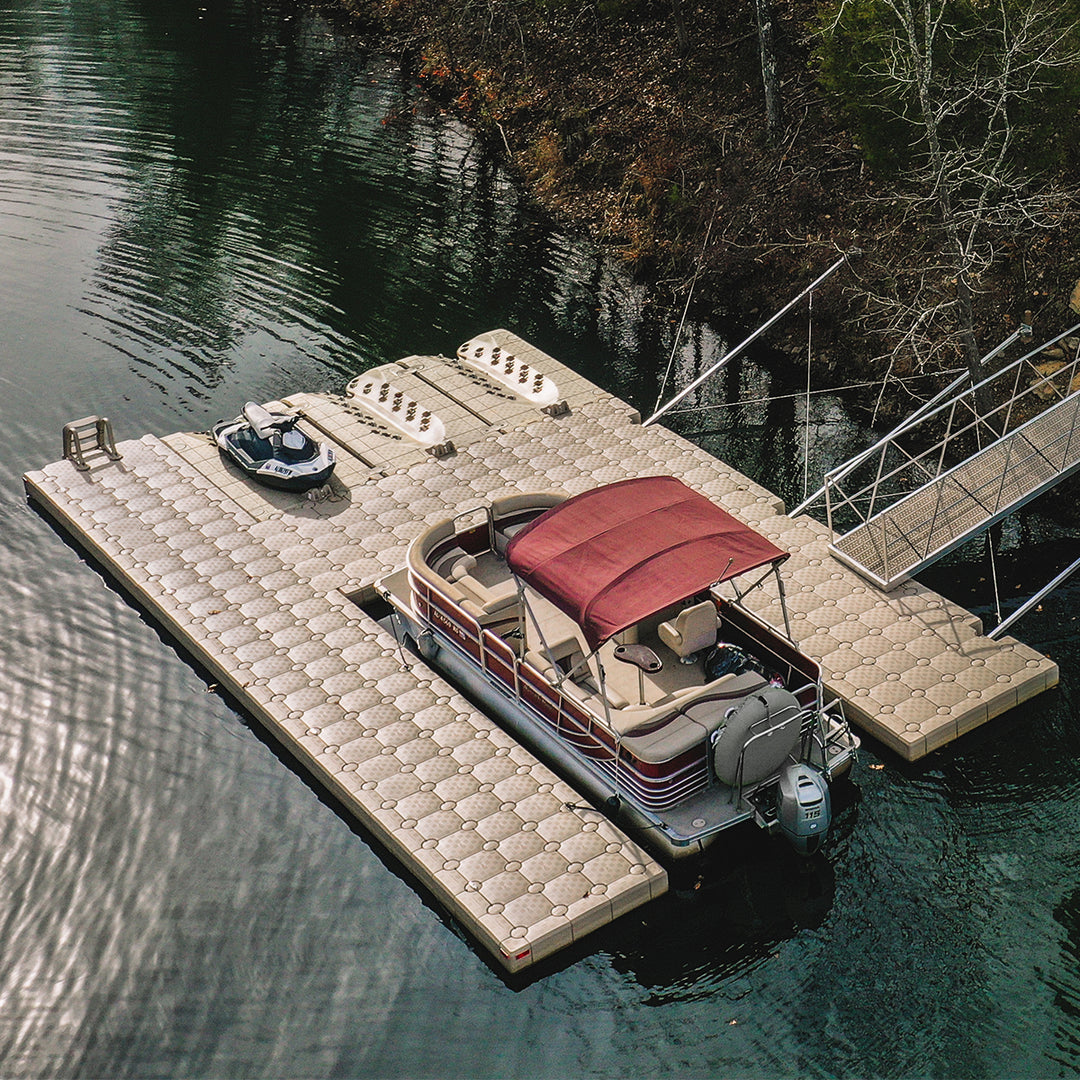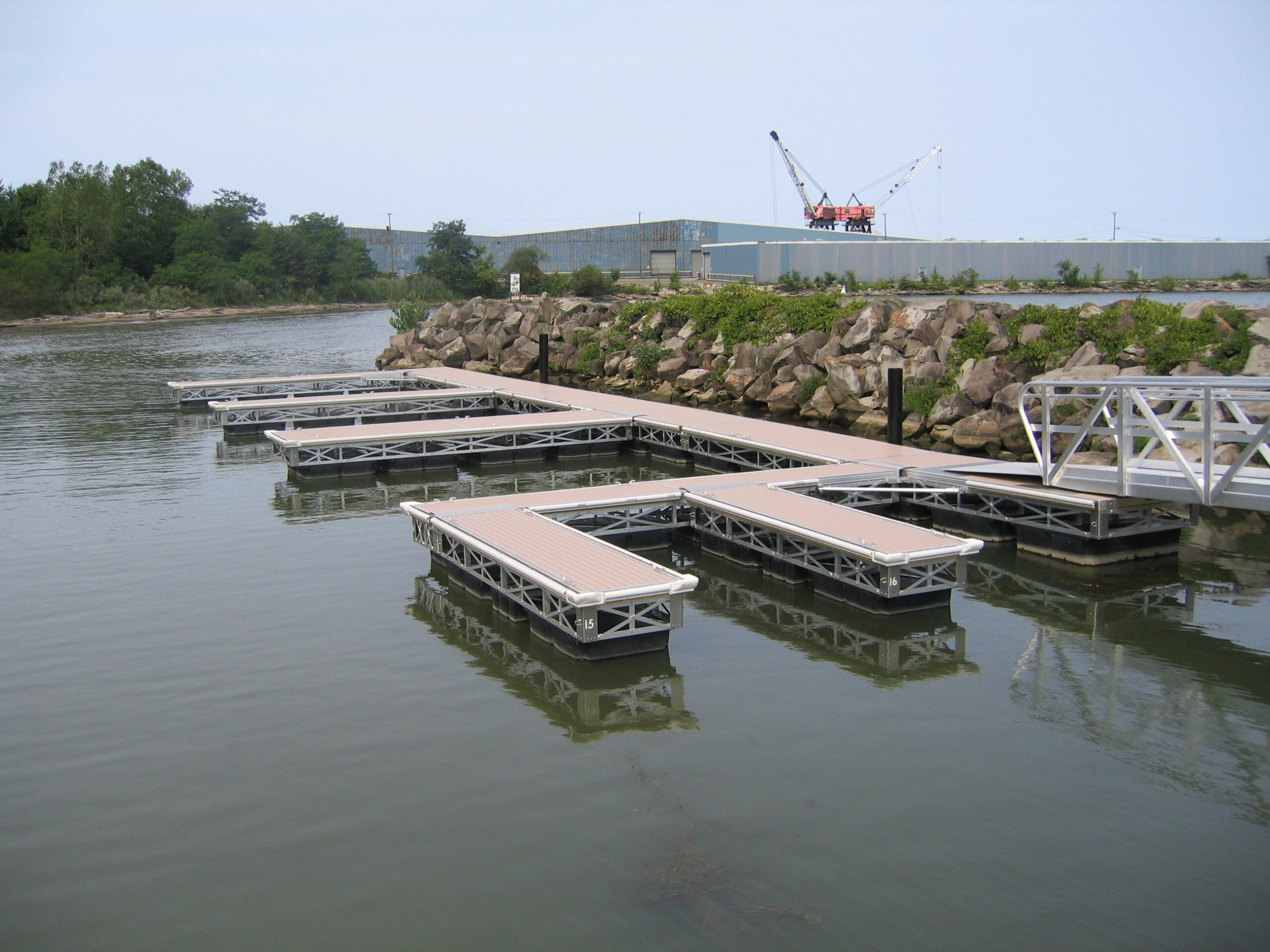Cutting-edge Floating Docks: The Future of Waterside Access and Recreation
Floating Docks: The Perfect Option for Versatile Water Access
Floating docks existing a compelling solution for a selection of water accessibility needs, offering versatility that goes beyond typical mooring options. The modular nature of floating docks promotes personalization, providing to specific demands.
Advantages of Floating Docks
Floating docks deal countless advantages that boost water gain access to for various applications. Their capacity to drop and rise with changing water levels makes them especially useful in environments with varying trends or seasonal variants. This versatility ensures that vessels can easily anchor without concern for the water's depth, giving a trusted platform for entertainment, business, and commercial usages.
In addition, floating docks are usually built from sturdy materials that stand up to corrosion, making them appropriate for lasting usage in aquatic atmospheres. Their installation is usually much less intrusive than traditional fixed docks, lowering the environmental effect and facilitating quicker deployment (floating docks). This versatility permits less complicated relocation or reconfiguration according to user needs or environmental modifications
Safety is another key benefit; floating docks can give secure accessibility for people boarding or getting off from watercrafts and minimize the danger of mishaps connected with unstable surfaces. They can be made to accommodate a selection of accessories, such as fenders and cleats, boosting performance. On the whole, floating docks represent an effective remedy for boosting water access throughout diverse industries while promoting safety and security and ecological sustainability.

Sorts Of Floating Docks
Numerous sorts of floating docks deal with different demands and environments, each created with specific functions to maximize functionality. The most usual types include modular docks, which are composed of interlocking areas that enable simple customization and growth. These docks are optimal for recreational usage, as they can be tailored to fit numerous boat dimensions and water conditions.
An additional prominent alternative is the fixed floating dock, which remains anchored in position however drifts with transforming water levels. floating dock builder. This type is especially matched for locations with minimal tidal fluctuations, supplying secure access for fishing or swimming. Furthermore, there are drive-on docks, which include a sloped layout that allows boats to quickly drive on and off, making them appropriate for individual boat and smaller vessels
For industrial applications, sturdy floating docks are offered, created from enhanced products to hold up against substantial lots and harsh marine environments. Eco-friendly floating docks use lasting materials and designs to reduce environmental impact, often incorporating features like greenery to support regional wildlife. Understanding the various sorts of floating docks makes sure that individuals can select the most appropriate option for their certain requirements.
Installment Refine Summary
An effective setup of floating docks requires mindful planning and interest to detail to make sure optimal efficiency and security. The initial action involves analyzing the site problems, including water deepness, current, and possible obstacles. This analysis informs the option of the ideal dock products and style tailored to the certain environment.
Next, getting required authorizations is important, as many territories have regulations relating to construction on water bodies. The setup can continue once authorizations are secured. Begin by preparing the structure, which may include anchoring systems or pilings tailored to the dock type and regional problems.
Following the structure setup, construct the dock sections according to supplier specs. Ensure that all parts are firmly fastened and lined up to hold up against environmental anxieties. Placement the dock in the marked area, ensuring it is level and steady.

Maintenance Tips and Best Practices
After the installment procedure is total, continuous maintenance plays a vital duty in making certain the long life and performance of floating docks. Normal assessments ought to be conducted to identify any kind of indications of deterioration, wear, or damages - floating docks. Check for any kind of loose installations, fractures, or separation in the dock sections, as these can compromise structural honesty
Cleaning the dock is crucial to remove particles, algae, and various other build-up that can influence its appearance and security. Use a mild pressure clean periodically to keep cleanliness without creating damage to the surface area. Additionally, applying a safety sealant every few years can aid enhance durability and resist environmental wear.
Take note of the mooring lines and anchors, guaranteeing they are secure and cost-free from corrosion. Change any kind of degraded elements promptly to avoid threats. Seasonal adjustments may additionally be required; throughout severe climate condition, rearranging or reinforcing the dock can prevent damages.
Applications for Floating Docks
Floating docks serve a wide range of applications, providing to both entertainment and commercial demands. In entertainment settings, they provide seamless access to rivers for tasks such as you can try these out boating, angling, and swimming. Their adjustable nature enables installation in varying water degrees, making sure steady and secure gain access to regardless of tidal fluctuations.
Readily, floating docks are vital for marinas and beachfront companies. They facilitate the docking of vessels, enabling effective packing and discharging of products. Their modular style permits simple expansion or click this site reconfiguration to accommodate changing business demands, making them ideal for boat services, scenic tour procedures, or angling charters.
Furthermore, floating docks are made use of in environmental applications such as aquatic research and habitat restoration. They can serve as platforms for scientific research studies, monitoring water top quality, or performing wild animals studies without troubling delicate ecosystems.
In industrial contexts, floating docks are used in building and construction tasks, giving access to hard-to-reach locations for tools and workers. Their flexibility, durability, and marginal effect on the environment make them an ideal option for a variety of applications, boosting both capability and availability in different water-based environments.
Final Thought
In final thought, floating docks stand for an optimal service for diverse water accessibility needs, owing to their adaptability, sturdiness, and modular design. These frameworks facilitate risk-free mooring for various applications while lessening environmental effect throughout setup. The lowered upkeep requirements additionally boost their functionality. Floating docks offer as an important property for recreational, industrial, and ecological tasks, ensuring reputable accessibility to waterways and promoting sustainable methods in marine settings.
Floating docks existing an engaging remedy for a selection of water accessibility requires, supplying convenience that goes beyond typical mooring alternatives.Floating docks deal many advantages that improve Get the facts water gain access to for different applications. Generally, floating docks represent an effective solution for improving water access across diverse industries while promoting security and environmental sustainability.
An additional popular option is the stationary floating dock, which stays anchored in area yet floats with altering water degrees.In verdict, floating docks stand for an ideal option for diverse water access needs, owing to their flexibility, resilience, and modular style.